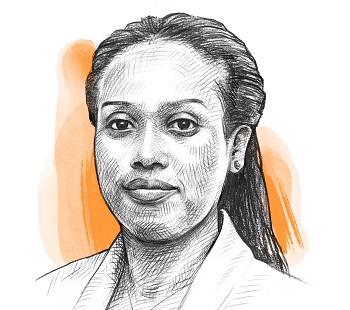ADIL – Support for decentralisation and local initiatives in the Republic of Djibouti
Objective
-
€11.5mBUDGET
-
26/01/2020PROJECT START
-
48 monthsDURATION
Despite strong economic performance over the past fifteen years, with an annual average GDP per capita growth of 3.1% between 2001 and 2017, the Republic of Djibouti faces major challenges in terms of human development, social protection and the reduction of territorial inequalities: insufficient and unequal access to basic services, steady influx of rural people to the capital, issues of social protection for the most vulnerable groups…
To address these major challenges, the Government has undertaken reforms to make five regions in the country (Arta, Ali-Sabieh, Dikhil, Obock, Tadjourah) key actors in poverty reduction, local development, the promotion of gender equality and the strengthening of resilience.
In this respect, the Government of Djibouti has recognised decentralisation as an essential institutional reform to reduce territorial divides and promote a harmonious and inclusive development of Djiboutian society. Local governance is synonymous with proximity and a better understanding and ownership of territorial challenges. It should make it possible to provide a more effective response to the issues of poverty, the inclusion of women and adaptation to climate change.
ADIL objective: promote local development
The Support for Decentralisation and Local Initiatives Programme (ADIL) in the Republic of Djibouti aims to promote inclusive and sustainable local development in the interior regions of the country.
The specific objective of ADIL is to strengthen the local governance system by supporting development initiatives that make local stakeholders central to the strategies and activities. It is helping regional councils, which are key stakeholders in local development, build a real socio-institutional structure of local governance by involving the decentralised administrative services and civil society and efficiently exploiting all the potential of each region.
ADIL’s activities are based on three components:
• Component 1: improve local development finance in the fields of territorial development, economic development, human development and governance, without forgetting water conservation and the fight against climate change.
• Component 2: institutional support for local authorities and decentralised services in the use of these resources and the achievement of local development objectives (including gender-responsive budgeting, human rights, the fight against climate change and the participatory process).
• Component 3: support for the overall management and steering of the decentralisation reform. This reform will result in a strengthening of the legal and institutional framework, the implementation of advocacy and capacity building activities for all the stakeholders and the establishment of a monitoring-evaluation and capitalisation mechanism.
Innovative and flexible territorial strategy
Expertise France’s operational strategy is making it possible to test innovative solutions in regional councils which could eventually be institutionalised. Innovation, flexibility and adaptation to change are the drivers of our action. The objective is to identify maladjustments and/or inconsistencies in laws and regulations in terms of local realities. This allows us to adapt better to local situations and support the effective implementation of decentralisation.
Capacity building at all levels
Expertise France is building a relationship of partnership and support with Djiboutian institutions. The objective is to promote knowledge-sharing and capacity building at all levels:
• At the central level, it involves supporting key institutions, such as the State Secretariat for Decentralisation in its role of management, structuring and oversight.
• At the regional level, it involves building the capacities of regional councils as contracting authorities and providing decentralised technical services and the territorial administration with the capacity for action required to support regional councils.
At all levels, responsiveness, flexibility, ongoing exchanges and the promotion of local knowledge should increase the capacity for action of institutions to ensure the sustainability of the results and of local development.
Territorial approach to local development
To create a real territorial dynamic, the ADIL programme is focusing on financing local and sustainable economic development activities that take into account the issues of social inclusion, empowerment and sustainable development. It is based on mobilising a wide range of resources specific to the territory (social capital, physical capital, human, cultural and institutional resources…) through appropriate mechanisms of governance and public administration. This makes the territory a fully-fledged stakeholder in development.
With this approach promoted by the European Union, Expertise France’s objective is to support local stakeholders and give them the autonomy and means they need to identify their priorities and discuss the most appropriate solutions. This approach aims to help create a perfect synergy between economic development, the empowerment of marginal or vulnerable groups, citizen participation and environmental protection.
ADIL programme news
September 2020 – Launch of activities
The official launch ceremony of the ADIL programme was held in Dikhil on 17 September 2020. It gathered all Djibouti’s decentralisation stakeholders (ministries, parliamentarians, technical and financial partners, regional councils, prefectures, civil society, etc.) and marked the beginning of the programme’s activities.
Following the ceremony, Expertise France organised a workshop on the theme of decentralisation and the transfer of competences to regions. Discussions were held between representatives of the sectoral ministries and local officials to address the coordination difficulties and consider solutions for improvement.
Finally, this ceremony also provided the opportunity to deliver equipment and IT hardware to the Regional Council of Dikhil. This equipment will be used to set up the office of the General Secretary of the Regional Council, a key position for the proper functioning of the local authority.


